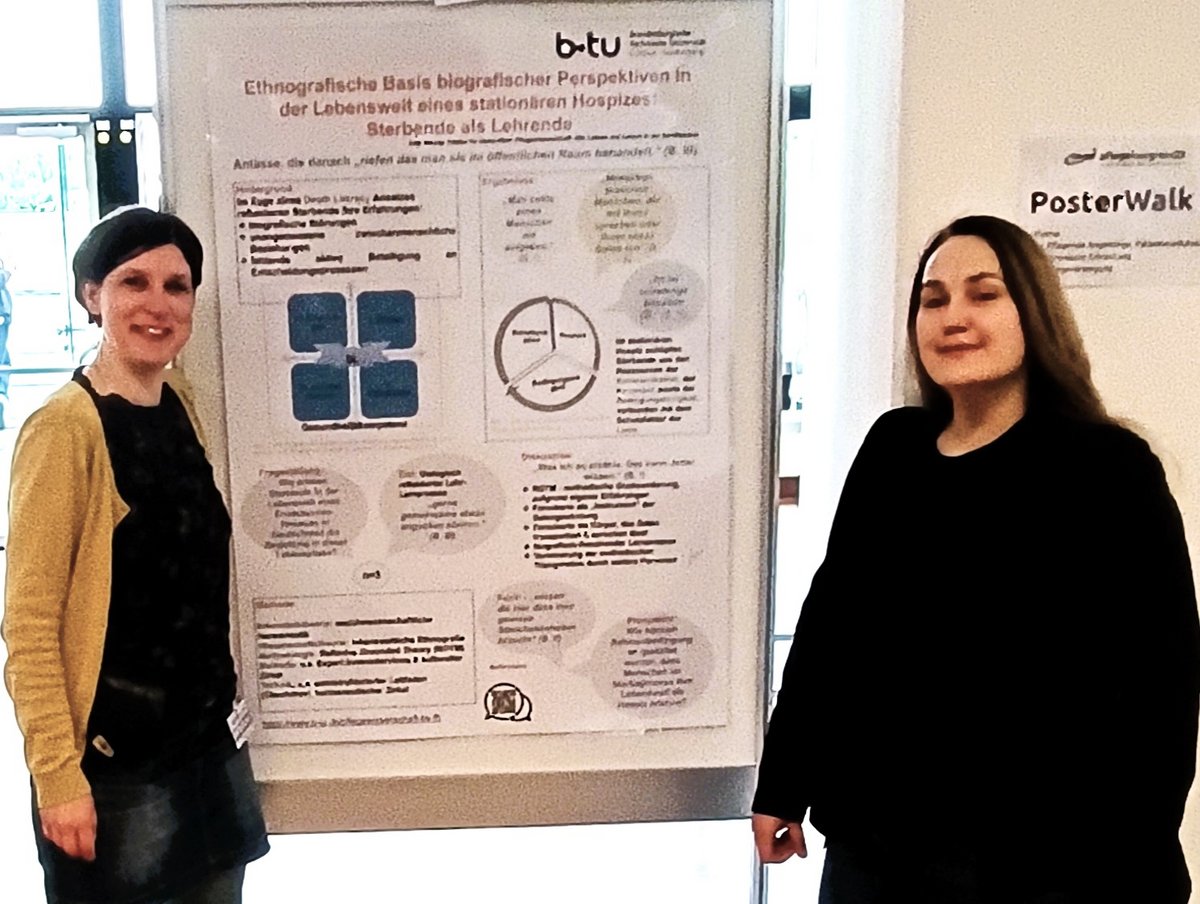A life project with people in a hospice
In her Master's thesis, Anja Herzog examined the "everyday life" of people who move into an inpatient hospice in order to LIVE there.Under the title "Dying people as teachers in the hospice: The subjective view of dying people on their health experience in the living environment - adult hospice", she dealt with this topic. She was accompanied in her research by Prof. Dr. Jacob Spallek and M. Phil., Dipl. (FH) Marie Tallarek, Chair of Health Sciences. Today, Anja Herzog supports Nursing Science students with her experience and knowledge as a member of the Department of Teaching and Learning in Professional Practice.
"Not only is every person mortal, but all the diversity that surrounds us in our world," emphasizes Anja Herzog. "What becomes visible is the togetherness - the "care" of both the individual and the (inter)national society, with the awareness that our lives are shaped and formed by processes of change. One conscious or unconscious constant in life that affects us is the certainty that all living beings, and therefore all people, are equally dying. But what is and remains undetermined is that: When and how I - YOU - WE will die."
Dying people report or have reported that they
- have the feeling that they are a burden on others.
- dying in pain or under considerable psychological stress, even in high-income countries.
- are accompanied in a hurtful way by healthcare professionals in their encounters with them.
- feel that their human and fundamental rights are being violated.
- feel that it is also challenging for those close to them if they are unable to care for the dying person as they would wish.
- worry at the thought of being accompanied in care facilities.
- value needs such as harmony, loyalty and affection.
They point out that: "You can't be so selfish in this day and age then." and wish for a togetherness in which there are people who: who "just like me because I am the way I am." Based on these experiences, (regional) communities, for example, have context-specific knowledge of the "death system" - hospice.
Some examples of context-specific knowledge
"The social psychologist Kurt Lewin (1890-1947) and Dr. Antje Tannen, research associate at the Charité in Berlin, confirm that research that produces nothing but books is not enough," explains Anja Herzog. "I would therefore like to expand and deepen my research activities in the hospice on the global question: What experiences do people describe in the dialog on and about dying in their current phase of life, in the respective center of life?"
Cultural processes in countries/regions such as Brandenburg and Lower Lusatia, which are experiencing social change, rely on people's experiences, for example in the dying process, in order to achieve any kind of "improvement". It requires a multi-/interdisciplinary approach. Using a critical-emancipatory paradigm and socio-critical theories such as death literacy, people in the dying process and their associated knowledge and experience are integrated into the research process as equal partners. They are partners in action and reflection. In the collaborations and the associated joint educational processes, grievances in life situations are verbalized in order to address them to the responsible authorities. On the other hand, the participants in the research process work on the challenges that are anticipated with dying, which has affected, is affecting and will affect people.
"On the one hand, funding that ideally combines accompanying and basic research is desirable for the continuation of the project. On the other hand, cooperation partners are desirable who want to create an environment (at least one region in Brandenburg as well as others (open)) in the hospice (hospice as a world of diversity and encounter) in which people can be accompanied in the dying process in an improved way."
Anja Herzog is the author of the book "Der Tod als Reflexionsgegenstand oder Teil des Lebens. Dying people as teachers in hospices", ISBN: 978-3-96146-944-4.
Specialist contact
Abteilung für Lehren und Lernen in der Berufspraxis
T +49 (0) 3573 85-786
anja.herzog(at)b-tu.de
Press contact
Kommunikation und Marketing
T +49 (0) 3573 85-283
ralf-peter.witzmann(at)b-tu.de


